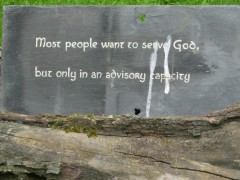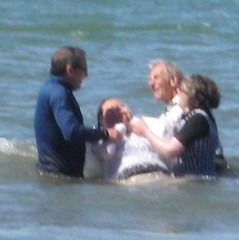Last Sunday, when I was away in Devon, we had a young woman student to preach at church, who took as her theme the story of the woman caught in adultery taken from John 8. It is a story I have preached on many times, and have heard preached on many times. It is a story that has been approached from countless angles, and easy to think that there is little new to explore. I have just listened online to the service.
In a wide ranging sermon, the thing that struck me - which would have made a brilliant sermon in itself, and would have stood more exploration - was her exploration of the postures, or, in her words, 'body language', of Jesus. The kneeling and writing, the looking deep into the eyes, the looking around and so on. To think about how our physicality expresses our hearts, how our gestures and postures speak of love or truth or grace (or, less positively, of more ugly attributes) is certainly worth pondering in some depth. I would have valued more time spent developing those ideas. The sermon reminded me of some of my own early endeavours, when my college tutors would gently remind me that I had too many ideas. It takes experience and confidence to realise that we do not need to include every idea we have or cover all bases in every sermon.
I had a teeny chuckly to myself that some of the hymns were the same as those that had been chosen by the person I was Baptising so far away, one of those Holy Spirit connections that never cease to amaze and amuse (in a good way).
It must be very nerve wracking for someone so young coming into a church known for its intellect, and I did detect some hints of nerves in the recording, but all credit to C, she delivered a carefully crafted sermon with some fresh insights, and gave those present something worthwile to mull over in the days ahead. I hope that as she grows in confidence she will be given the opportunities to exercise her ministry more widely.

